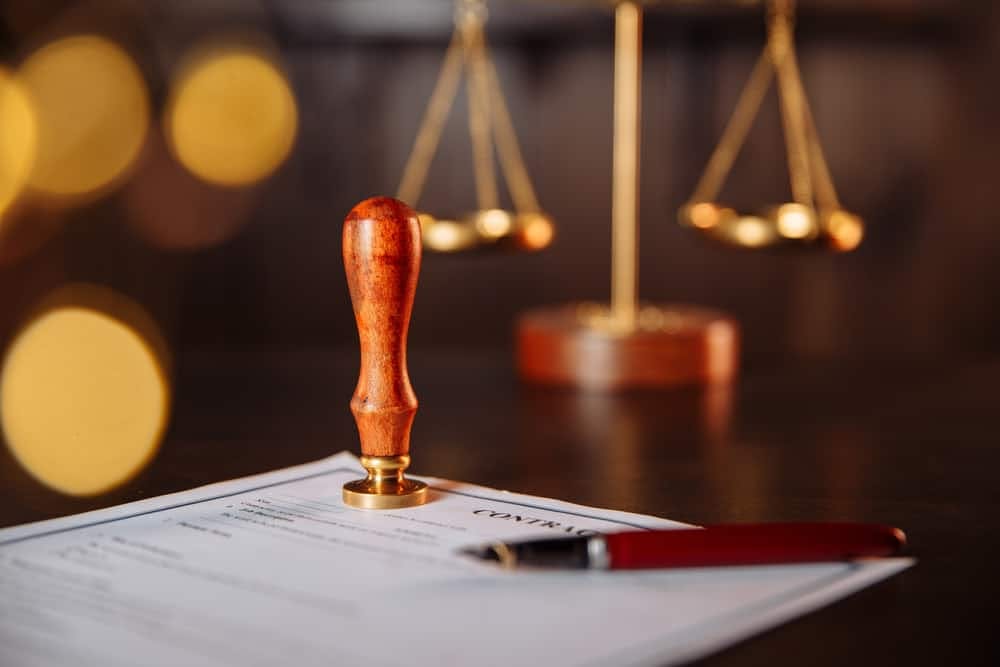
Recovering from a bicycle accident is an arduous, lengthy, and expensive process. As you heal from your injuries, you also have to grapple with costly medical bills, significant pain, and the crash’s psychological toll.
All those losses add up, but what can you do to make up for them?
A personal injury claim allows you to seek compensation for many losses you incur from a bicycle accident.
But how much is a bicycle accident claim worth? And how do you maximize your payment from a claim?
These are questions a Auburn personal injury attorney can help you with. Following is information about what determines the value of a bicycle accident claim and how an experienced lawyer can help you recover the money you need.
What Is a Personal Injury Claim?

A personal injury claim is a legal process you start when you get hurt because of someone else’s actions or negligence. It’s like asking for a fair fix for the harm you suffered.
Here’s how a personal injury claim works:
First, you show that the other person caused the accident that led to your injuries. For example, maybe the driver wasn’t paying attention when you were cycling and hit you.
Then, you list out all the ways the accident affected you. This includes your medical bills, any money you lost because you couldn’t work, and even your pain and stress from the collision.
The goal is to recover compensation from the liable party, though their insurance company is usually the entity that pays the claim. This process typically involves negotiating with the other person and their insurer.
If you can’t reach an agreement, you could take your case to court, where a judge or jury will decide who is liable and for how much.
So, How Much Is a Bicycle Accident Claim Worth?
The value of a bicycle accident claim depends on multiple factors specific to each case, which makes it difficult to say what an average claim is worth.
A personal injury lawyer will need to evaluate your case and the available evidence before they can assess your claim’s value.
Some of the factors that affect the worth of a bicycle accident claim include:
- Severity of Your Injuries: The more severe your injuries, the higher your claim’s value usually is. Serious injuries often need more medical treatment and a longer recovery time, which means more medical bills to pay.
- Medical Expenses: This includes all costs related to your medical care, from your initial treatment at a hospital to ongoing therapies. The total of these expenses plays a big role in determining your claim’s worth.
- Lost Earnings: If your injuries keep you from working, you can seek compensation for your lost income. This covers the money you would have earned if the accident hadn’t happened.
- Bike and Property Damage: If your bicycle or other personal items sustained damage in the accident, you could seek compensation for their repair or replacement costs.
- Insurance Coverage: The at-fault party’s insurance policy limits can also affect your claim. You cannot recover more money than the policy limits allow. If their policy has sufficiently high limits, you could obtain sufficient compensation to cover your losses.
- Future Expenses and Losses: Sometimes, injuries lead to long-term or permanent effects. This can mean ongoing medical costs or a reduced ability to work. Your claim should include a demand for money for these future financial challenges as part of your compensation.
- Legal Representation: Having a lawyer can influence your claim’s value. They can negotiate with the liable party on your behalf and demand compensation that accounts for all your relevant losses.
What Losses Does a Bicycle Accident Claim Cover?
The way you maximize your compensation from a bicycle accident claim is to thoroughly document all the ways the accident has affected your life. This includes the crash’s physical, emotional, and financial toll.
Some of the losses for which you can pursue compensation include:
Medical Bills
This category covers all your healthcare costs related to the accident. It includes emergency room visits, hospital stays, surgeries, medications, physical therapy, and any future medical treatments you might need because of your injuries.
Lost Income
If your injuries prevent you from working, you can claim the income you lost during your recovery as part of a personal injury claim. Lost income includes any lost earning capacity if your injuries affect your ability to work in the future.
Pain and Suffering
This category of loss accounts for the physical pain and emotional distress you experience due to the accident. It recognizes the non-economic impact of your injuries, like anxiety, depression, and the loss of enjoyment in daily activities.
Property Damage
If your bicycle or other belongings sustained damage, you can claim their repair or replacement costs.
Loss of Consortium
This loss applies if your injuries affect your relationship with your spouse or partner. It compensates your spouse for the loss of companionship, intimacy, affection, and support.
Rehabilitation Costs
After a severe injury, you might need rehabilitation services like physical therapy or occupational therapy. You can include these costs in your claim.
Out-Of-Pocket Expenses
Any other expenses directly related to your accident that you paid for yourself are compensable, such as travel costs to medical appointments, hiring help for household chores, or buying special equipment for your recovery.
How to Protect Your Rights After a Bicycle Accident
Taking the right steps after a bicycle accident can make a big difference in your ability to receive fair compensation.
Here’s what you should do once you’ve left the crash scene and sought medical attention:
- Keep all your medical records and receipts. These documents are key evidence for your injuries and treatment costs.
- Document your recovery. Take notes on your injuries, pain levels, and how they affect your daily life. This helps show the full extent of your suffering and its impact.
- Avoid discussing the accident details on social media. The driver who hit you and their insurance company can use anything you post online against you in your claim.
- Gather any evidence you have from the accident, like photos, witness information, and police reports. This evidence supports your version of events.
- Consult a lawyer who has experience handling bicycle accidents. They can guide you through the claim process, deal with insurance companies, and make sure you don’t settle for less than your claim’s actual value.
Taking these steps helps strengthen your claim and increases your chances of getting the compensation you need to recover.
Common Legal Challenges With Bicycle Accident Claims
A bicycle accident claim might seem like an open-and-shut case, especially if you had the right-of-way when the crash occurred. However, injured cyclists frequently encounter significant legal obstacles in their fight for compensation.
Some potential issues you could face include:
- Determining Fault: Proving who caused a bicycle accident is sometimes tricky. You need clear evidence to show the other party’s negligence caused the accident. This might involve complex legal arguments and interpretation of traffic laws.
- Dealing with Insurance Companies: Insurance companies might dispute your claim’s value, question your injuries’ severity, or argue that you caused the crash. Negotiating with them is challenging without legal help.
- Statute of Limitations: Every state has a deadline for filing personal injury lawsuits established by that state’s statute of limitations. If you miss this deadline, you lose your right to file a lawsuit, no matter how strong your case is.
- Documenting Non-Economic Losses: Proving non-economic losses, which are subjective losses like pain and suffering, is challenging because they don’t have a direct monetary value. You need to communicate the extent of your emotional and physical distress effectively.
- Gathering Sufficient Evidence: Collecting and presenting enough evidence to support your claim is the foundation of a personal injury case. This includes medical records, witness statements, and accident scene photos. A lack of evidence can weaken your claim.
- Pre-existing Conditions: If you have pre-existing medical conditions, the insurance company might argue that your injuries were not related to the accident. Overcoming this challenge requires medical evidence that clearly links your injuries to the accident.
Do You Need a Lawyer for a Bicycle Accident Claim?
You absolutely need a personal injury attorney’s help to maximize your compensation from a bicycle accident claim. For one thing, building a comprehensive case requires large quantities of time and energy. That’s a lot to take on after a collision, especially if you have severe injuries.
A lawyer can build your case and pursue compensation on your behalf while you concentrate on your medical treatment.
Next, maximizing your compensation from a bicycle accident claim requires specific knowledge and experience. If you don’t have a legal background, you might leave money on the table and settle for less than your claim is worth.
A personal injury attorney can use their experience and training to help you recover more money.
Finally, you need a plan for what happens if your case goes to court. Civil trials involve legal procedures most of us don’t know because we aren’t lawyers. Without a capable trial attorney to support you, a court case is an uphill legal battle.
How a Personal Injury Attorney Can Help With Your Bicycle Accident Case
An attorney brings their accumulated knowledge, experience, and resources to your case, helping you through the complexities of the legal process. Their job is to help you recover fair compensation for your injuries and losses.
Here are a few ways an attorney can assist you with your bicycle accident claim:
- Evaluating Your Case: An attorney can assess your case, explain your rights, and give you a realistic picture of what to expect. They can help you understand the strength of your claim and the potential compensation you could receive.
- Gathering Evidence: Lawyers know how to find evidence that supports your claim. They can obtain police reports, medical records, and witness statements. They can also work with accident reconstruction experts to strengthen your case.
- Negotiating with Insurance Companies: Attorneys have experience dealing with insurance companies. They know the tactics insurers use to reduce payouts and can negotiate effectively on your behalf to ensure you get a fair settlement.
- Representing You in Court: If your case goes to trial, an attorney can represent you in court. They can handle all aspects of the trial, from preparing legal documents to arguing your case before a judge or jury.
- Calculating Damages: Lawyers can accurately calculate the total amount the accident cost you, including medical expenses, lost income, pain and suffering, and any other losses. This helps ensure you seek the right amount of damages.
- Handling Paperwork and Deadlines: Legal claims involve a lot of paperwork and strict deadlines. Your attorney can manage all the necessary documentation and file everything on time so you don’t miss any critical deadlines.
- Advising on Legal Decisions: You’ll have to make many decisions throughout your case. An attorney can provide valuable advice on the best course of action at each step, helping you make informed choices.
Deadline to File a Bicycle Accident Lawsuit
Your window to file a bicycle accident lawsuit depends on where the collision occurred. Every state has a law called a statute of limitations that sets the deadline by which you must file a lawsuit.
Some states give you three or four years from the accident date to file a lawsuit, while others say you must file your suit within a year or two.
If you wait too long to file a lawsuit, you lose your right to recover compensation, no matter how strong your case appears.
When to Contact a Bicycle Accident Lawyer

Lawyer
Consult a lawyer as soon as possible after a bicycle accident. Critical evidence can disappear or deteriorate shortly after a crash, and an attorney can take steps to preserve it. Additionally, talking to a lawyer immediately after a collision gives them the maximum amount of time to build your case.
How Much Does a Bicycle Accident Attorney Cost?
Most personal injury attorneys work on a contingency basis, meaning they do not charge any upfront fees. Instead, their payment comes from a percentage of whatever compensation you recover. However, they don’t get paid unless you win your case.
This approach makes legal representation more affordable and encourages your attorney to pursue the maximum amount of compensation, as a larger payout benefits you both.












